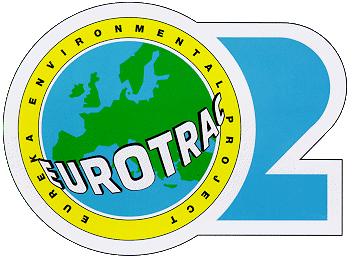

European Commission
We welcome contributions from the CMD PIs and other researchers
if relevant to the objectives of CMD and/or to the motto of the workshop
Workshop Informations
Extended Abstract, printed version (8.1 Mo)
Links
EC Cluster 3
"Oxidation Processes"
EUROTRAC-2
"Chemical Mechanism
Development"
Shaping the Future
of
Atmospheric Chemistry
Research
in Europe
9-11 September, Paris, France
CMD (Chemical Mechanism Development) is an SSC approved sub-project of the EUREKA Project EUROTRAC-2. Its scientific aim was to develop robust, application-oriented scientifically sound kinetic schemes of atmospheric chemical transformations of pollutants over Europe, upon which cost-effective environmental control and abatement strategies of photo-oxidants and acidic substances can be based.
This is the last in a series of Annual Workshops on Chemical Mechanism Development under the umbrella of EUROTRAC-2, since the Project will finish in December 2002. As on previous occasions, the Workshop also serves as an official forum for EC Research Projects in the field of Atmospheric Composition Change which include a strong CMD component.
The purpose of this Workshop is not only to show that CMD has been an extremely successful sub-project of EUROTRAC-2 which has reached the ambitious goals defined in the CMD Project Description. It also marks the transition to the EC 6th Framework Programme (FP) which sets new research priorities, focussing on the impact and mechanism of greenhouse gas emissions and atmospheric pollutants on climate, ozone depletion, and carbon sinks. It also introduces novel instruments of funding, e.g. very large Integrated Projects and Networks of Excellence which are already taking shape. Chemical processes in the atmosphere are at the heart of these new research priorities, and we expect an increasing demand for measurements and calculations of fundamental parameters and chemical mechanisms, for implementation in the models which will be developed and applied within the large Integrated Projects of FP6.
These considerations have prompted us to orientate the present Workshop towards the future of atmospheric chemistry research in Europe:
«Shaping the Future of Atmospheric Chemistry Research in Europe».
Efforts are under way to create a new umbrella for the scientific community who is ready to meet the up-coming new challenges for laboratory and theory-based fundamental atmospheric chemistry research in Europe. A status report on the initiatives taken will be presented at the Workshop.